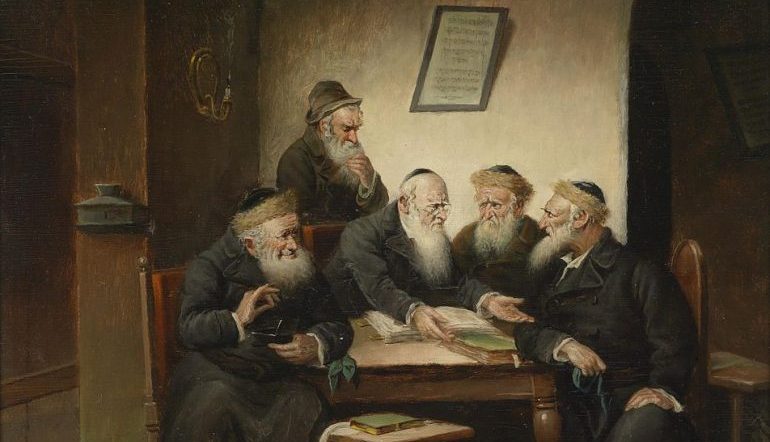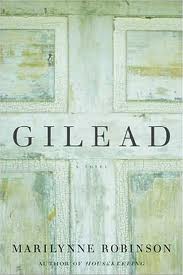Guest post by Scott Nadelson
My parents went out of their way to warn me about A Serious Man, the most recent film by Joel and Ethan Coen. They’d seen it a week before I did, with several friends from their gated golf community in West Palm Beach, and because they know I’m a Coen brothers fan, called especially to tell me they’d found it offensive and mean-spirited, an unsympathetic, even nasty, portrayal of Judaism. “It’s not even worth renting,” my father said.
My parents’ tastes and my own often diverge, especially when it comes to comedy, and as soon as I heard their objections, I knew I’d love the film, and I couldn’t wait to see it. And indeed I did love it, the tale of a middle-aged Jewish father whose life slowly falls apart in a Midwestern suburb in 1967, a contemporary re-telling of the story of Job. It’s a subtle and hilarious movie, moralistic without being reductive, with the psychological complexity of Malamud, the satiric wit of Philip Roth, and the magical, folk tale inflections of I. B. Singer. In other words, it’s the most Jewish movie I’ve ever seen.
Intellectually, I understand why the movie bothered my parents so much. They particularly disliked the portrayal of the three rabbis sought out by the protagonist, Larry Gopnik, a physics professor whose wife is leaving him for another man; whose brother keeps getting arrested, first for gambling, then for soliciting sex in a gay club; whose crew-cut neighbor menaces him with his lawnmower and his hunting rifle. Larry turns to the rabbis for solace in the face of his troubles, hoping for answers to his existential questions: What does all of this mean? Is there some divine plan that accounts for my suffering? The first rabbi, barely out of college, tells him his problems are all a matter of perspective. The second tells him that these questions are unanswerable and not worth thinking about, better to just go on with his life. The third, known throughout the community as a brilliant sage, full of mysterious wisdom, won’t see him at all.
The rabbis are bumbling and ineffectual, comically flawed and eminently human. Why should this be so shocking to my parents? In the New Jersey suburbs where I grew up, flawed and human rabbis were part of the landscape. Like anyone else, they could be gossipy, political, and petty, impatient with others’ problems, self-involved and self-indulgent. My mother knows this better than anyone. She was principal of a Jewish day school, and a rabbi who worked with her turned out to be a certified kleptomaniac; he stole teachers’ lunches out of the staff refrigerator, and my mother finally had to fire him when he started stealing loaves of challah designated to go home with the children on Friday afternoons.
What my parents and their friends object to, I’m guessing, isn’t the truth of the portrayal, but rather its audience. It’s an old cliché in Jewish life to debate whether our culture’s natural tendency toward self-deprecating humor is “bad for the Jews.” This is a central tension in Roth’s novel The Ghost Writer, in which the young Nathan Zuckerman is confronted by his family and their rabbi over having aired their community’s dirty laundry in his stories. The Coen brothers themselves have addressed this issue in discussing the reception of A Serious Man. For the most part they were embraced by the local Jewish community in Minneapolis, where they shot the film, but people watched nervously, afraid that the brothers would take the jokes too far, make them look like buffoons. It’s one thing to talk about the kleptomaniac rabbi among ourselves but another to reveal his transgressions to the gentiles.
What I love about A Serious Man, on the other hand, isn’t that the Coen brothers have exposed the ugly side of Jewish life to a non-Jewish audience, but that in making a film about Jewish characters they’ve shown just how Jewish their sensibility has been all along. The power of their humor–and of Jewish humor generally–isn’t its self-deprecation but rather its relentless scrutiny, its insistence on being honest about the most fundamental crises of human nature and mortality. The Coens have been exploring this territory since the beginning of their career.
Take the end of The Big Lebowski, for instance, when Walter and The Dude stand on a bluff above the Pacific Ocean, mourning for their friend and bowling partner, Donny, who has just died of a heart attack. Walter, in his ordinarily blustery way, delivers a eulogy for Donny that devolves into a rant about Vietnam. When he pours Donny’s ashes into the sea, the wind blows them back into The Dude’s face, whitening his beard, clouding his sunglasses. The Dude vents his frustration and grief, and Walter hugs him, shakes his head, and says, “Fuck it, dude. Let’s go bowling.” As absurd as it is, the moment captures perfectly the futility of honoring the dead, a ritual that honors only the living. Fuck it, dude: life goes on, whether those grieving want it to or not.
Similarly, the portrayal of the rabbis in A Serious Man may be parody, but at its core it addresses the deepest conundrum of faith and doubt. Without concrete evidence of God’s existence, how can a person know whether his suffering is part of a divine plan? The rabbis’ ineffectualness exposes a truth we all have to face one way or another; the question of whether or not life has meaning beyond what we see will remain mysterious until we die, and while we may seek answers from our community or tradition, those answers are never more than guesses, hopes, intimations, leaps of faith. What the rabbis really tell Larry is that he has a choice: Thrash around in your doubts, or make peace with them. Either way, your footsteps lead to the same hole in the ground.
And maybe this is really why my parents and their retiree friends found the film offensive. They finished their thrashing a long time ago and have since mastered the art of ignoring all doubts and fears. They just want to play bridge and tennis and drive their golf carts down the remaining length of the path they’ve been following all along. They know as much as they need to about where it leads. They’ll leave it to me to laugh or cry about it. I do both.
Much has been written about Jewish humor and its Talmudic origins, its flourishing as a counterweight to oppression and poverty in Eastern Europe, its turn toward the acerbic and apocalyptic in the wake of the Holocaust. But I trace it to Biblical roots, to Job’s lament following the loss of his livestock, the death of his family. “I am not at ease,” Job says, “nor am I quiet; I have no rest; but trouble comes.” After crying out, “Why is this happening to me?” year after year, century after century, Job’s ancestors began to weary of tears, of rending clothes and gnashing teeth. We continued to cry out, but we started to do so with a certain emotional distance, a recognition that we have repeated the question so often that it has become ridiculous. “What’s going on?” Larry Gopnik asks again and again in A Serious Man, whenever his children fight or his brother gets in trouble, and the more often he asks, the harder we laugh at him. You’ll never know what’s going on, Larry. And neither will we.
At its best, Jewish comedy is an existential howl in the face of the unknowable and the profoundly tragic. It rages at the mystery of consciousness, the inevitability of death, the cruel pain of suffering, but it does so with the cool distance of resignation. Just listen to the echoes of Job in a classic Lenny Bruce performance, in which he sings “All Alone” and pines hilariously and heartbreakingly for lost love. “I don’t want some sharp chick who can quote Kerouac and walk with poise,” he says. “I just want to hear my old lady say, ‘Get up and fix the sink, it’s still making noise.'” And later, “To me she was so petty. Sometimes I wish that she were dead. But it would probably take her two hours to get ready.”
I am not at ease, nor am I quiet.
Hear it again in Jesus Is Magic, when Sarah Silverman sings “You’re Gonna Die Soon” to the residents of a nursing home. Only unlike Lenny, she’s through lamenting altogether, instead reveling in the suffering of others: “We’re all gonna die, but not as soon as you guys,” she tells a sweetly smiling couple, who seem utterly oblivious not only to her words but to the horror of their approaching demise.
I have no rest, but trouble comes. Fuck it, dude. Let’s go bowling.
This is Scott’s twelfth and final post for Get Behind the Plough.




